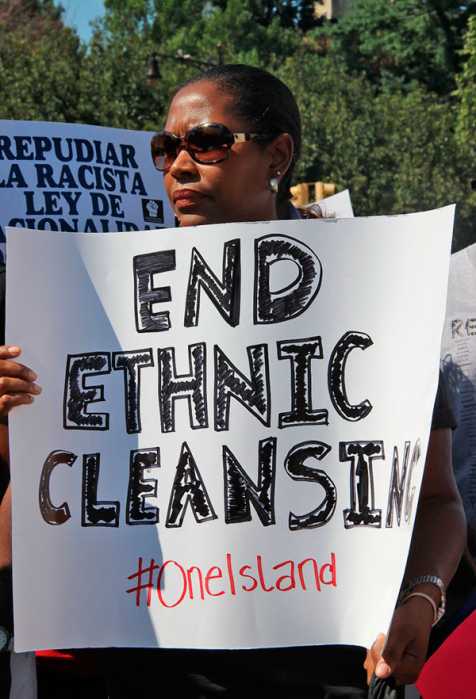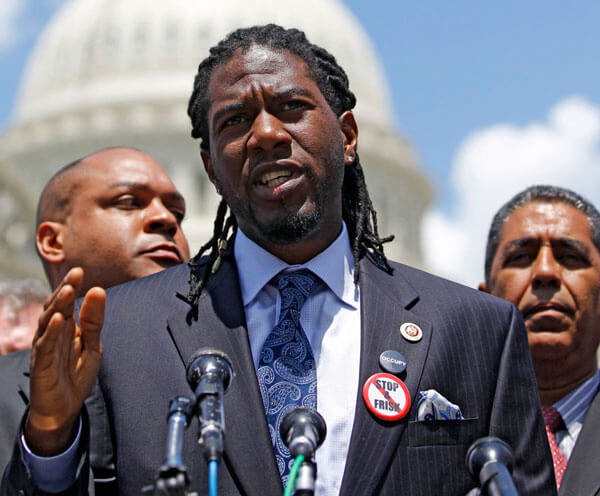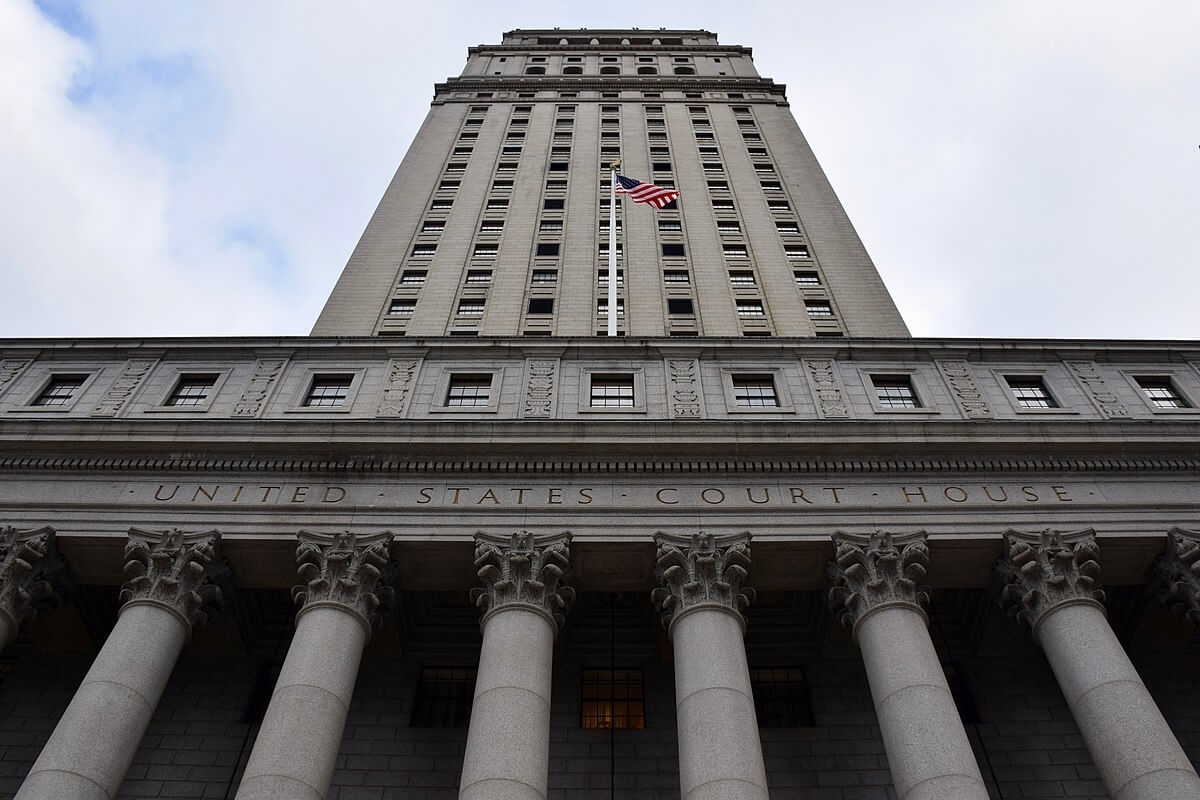Public Advocate Jumaane D. Williams has submitted a letter to the Department of Housing and Urban Development (HUD), strongly opposing the proposed rule which would prohibit the HUD Secretary from providing housing assistance to any household where at least one member is not of eligible immigration status.
The public advocate writes in response that “the proposed rule fails to meet the HUD Declaration of Purpose ‘…to provide for full and appropriate consideration, at the national level, of the needs and interests of the Nation’s communities and of the people who live and work in them.’” and urges it be withdrawn “in favor of a housing policy that actually serves and benefits the people of New York City and America.”
Full text of the Public Advocate’s letter sent to the Department of Housing and Urban Development is below.
Dear Clerk:
I write to express my objection with and opposition to the Department of Housing and Urban Development’s (“HUD” or “the Department”) proposed rule FR-6124-P-01, advanced to curtail existing benefits of housing assistance programs. The very language published by the Department in support of the rule demonstrates that the proposed rule operates on flawed calculations in arriving at its alleged benefit and openly professes it will cause as much — likely more — harm than good. Taken as a whole, the proposed rule fails to meet the HUD Declaration of Purpose “…to provide for full and appropriate consideration, at the national level, of the needs and interests of the Nation’s communities and of the people who live and work in them.”
Under existing HUD regulations, persons who are not citizens of the United States or hold a lawful residency status (“ineligible”) may live with family members who are citizens or hold such residency status (“eligible”) in subsidized housing or in a household with eligible members who receive housing assistance. In these circumstances, the amount of assistance received by the household is prorated to exclude the ineligible member. When this regulation was first promulgated by HUD in response to Section 214 of the Housing and Community Development Act of 1980, it was done to enact the statute while not jeopardizing the cohesion of the family unit, correctly considering maintaining such cohesion in the interests of American communities and the people who live and work in them.
The Department’s analysis for FR-6124-P-01 claims that the average annual subsidy under the present regulatory structure received by so-called “mixed” families — those comprised of eligible and ineligible members — amounts to $1,900 per person per year. This number appears to have been calculated by taking the total amount of housing assistance payments issued and dividing by the total number of persons in the receiving households — eligible and ineligible alike. However, per existing HUD regulation, and as demonstrated in the Department’s own analysis, HUD prorates the amount of assistance received by these households and only disburses monies based on the number of eligible recipients.
Yet, the Department’s analysis argues that by terminating benefits to households with ineligible members, this $1,900 yearly benefit will be redirected to families where all members are eligible to receive benefits, in a total amount of $60 million annually. This literally does not add up. HUD already does not distribute benefits to ineligible persons — the assistance disbursed would be the same whether or not the ineligible household member or members were present. To terminate benefits to “mixed” households in favor of households made of all eligible persons would result in no monies saved, but monies shuffled around from other eligible recipients.
Indeed, not only would the rule as proposed not save money, it would result in substantial additional costs, specifically to New York City. Following the consent decree that settled Callahan v. Casey in 1981, New York City has recognized that a legal right to shelter is mandated by Article XVII of the New York State Constitution, requiring the provision of shelter to homeless individuals. The text of HUD’s own summary and economic analysis acknowledges that the rule would exacerbate homelessness.
This proposed rule would impact approximately 2,800 households in New York City alone, encompassing 11,400 persons, nearly half of them children. When the Department’s own financial analysis considers costs associated with homelessness range from $20,000 to $50,000 per person, this rule would impose new costs on New York City of $228 million at minimum and possibly as much as $570 million. These are the projected costs for displacement of 2,800 households in one city, albeit the largest one; HUD analysis indicates this rule could impact up to 25,000 families nationwide.
I would return to something I raised at the beginning of this comment. The authorizing statute creating the Department of Housing and Urban Development explicitly states that the Department should operate with consideration of the needs and interests of the nation’s communities and the people in them. How this proposed rule could possibly operate in harmony with that principle escapes even the most forgiving imagination.
At no point in the Department’s own analysis does it clarify why it is in the interests of the nation’s communities to adopt a rule that would promote homelessness. At no point in the Department’s own analysis does it clarify why it is in the interests of the nation’s communities to adopt a rule that incentivizes families to splinter and separate in order to keep a roof over some of their heads, or to choose homelessness as a consequence of staying together. In fact, the Department openly acknowledges the harm of these choices in presenting them as valid options:
“Although the option of paying the full rent is possible, it may not be affordable. … Temporary homelessness could arise for a household, if they are unable to find alternative housing, for example in tight housing markets. Another compliance option, but a ruthless one, would be for the household to remain and continue to receive assistance but to ask the ineligible member(s) to leave. …a potential impact of this outcome would be homelessness of the unsupported family member.” (emphasis added)
In October of 2018, Adam Serwer of “The Atlantic” published the essay “The Cruelty Is the Point.” The central argument of the essay is that the policies of the Trump Administration are not motivated by principles of administrations past, of budget hawks or the virtues of limited government; rather, that there is a segment of society who feel entitled to the beneficial treatment and resources of America and the more a person identifies with a group scorned by that segment — immigrants, people of more color, women, LGBTQ+, or any who would dissent from this presumptive ruling class — the more that person deserves to be cast aside, deserves to be left in the street, deserves cruelty. After nearly a year since that essay and three years into the Trump Administration, policies and proposals such as this have done nothing to rebut Serwer’s argument.
I reiterate my strong opposition and objection to this proposed rule, and urge its withdrawal in favor of a housing policy that actually serves and benefits the people of New York City and America.
Sincerely,
Jumaane D. Williams
Public Advocate for the City of New York






















